Studio Hildebrand
Mag.Art. Christoph Hildebrand
+49 0163 5810594
ch@studio-hildebrand.net

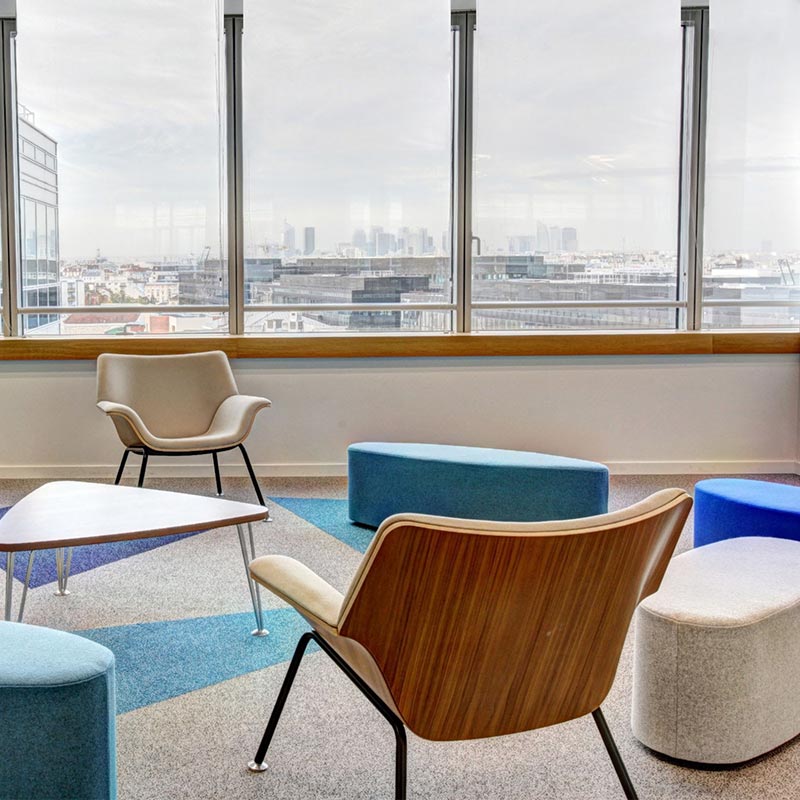

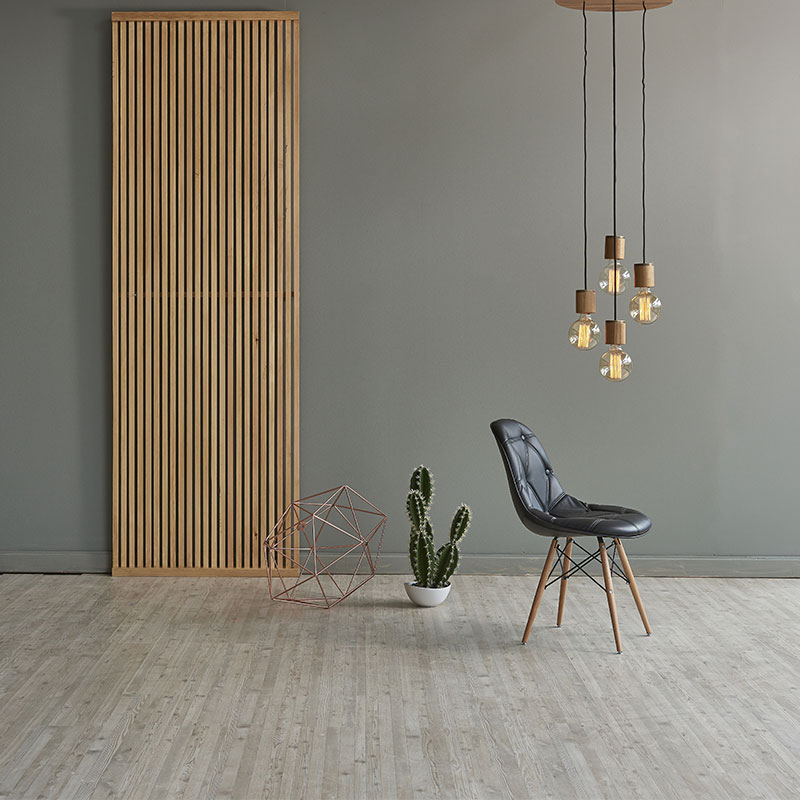
Mag.Art. Christoph Hildebrand
+49 0163 5810594
ch@studio-hildebrand.net




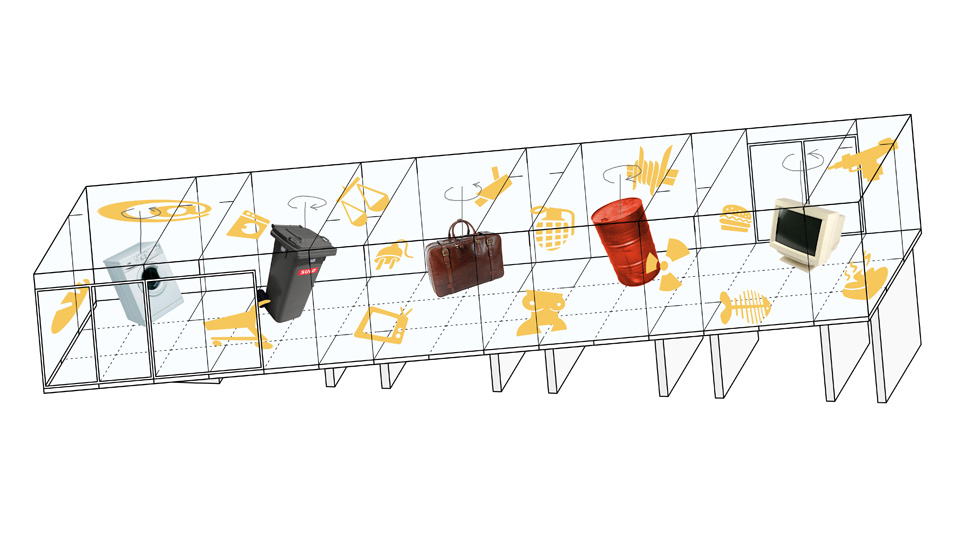
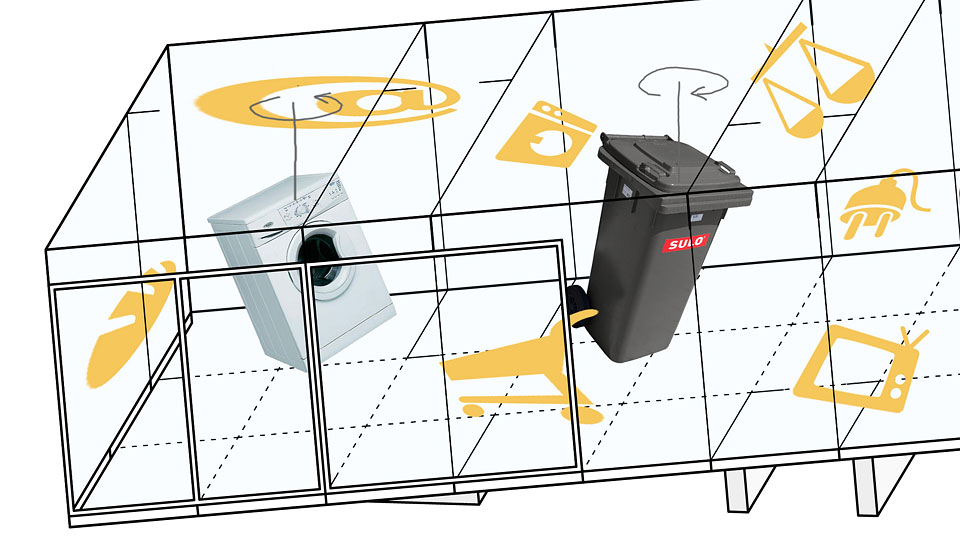
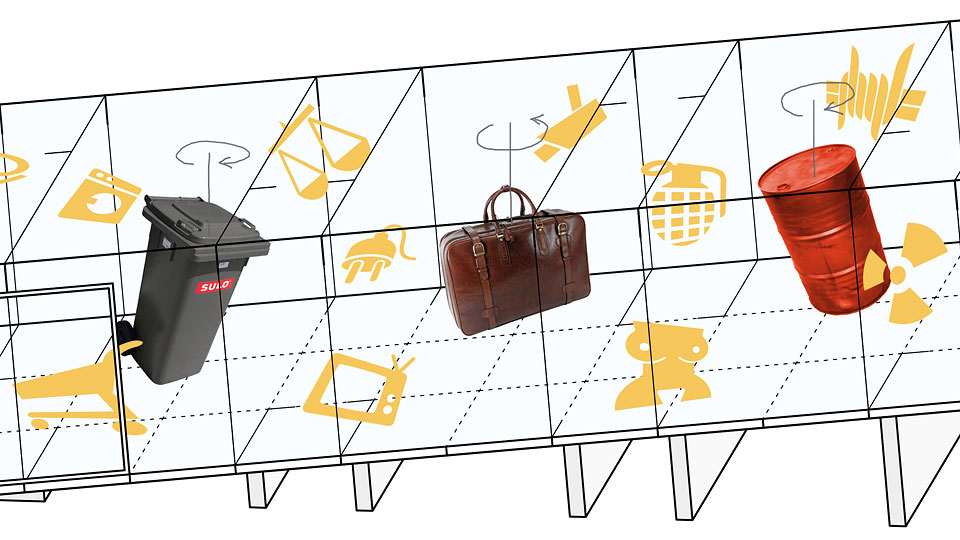
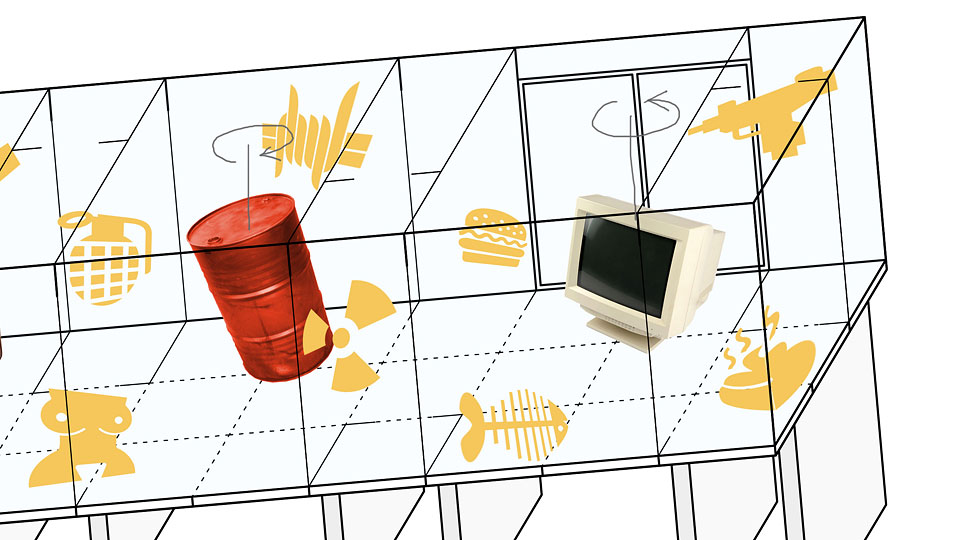
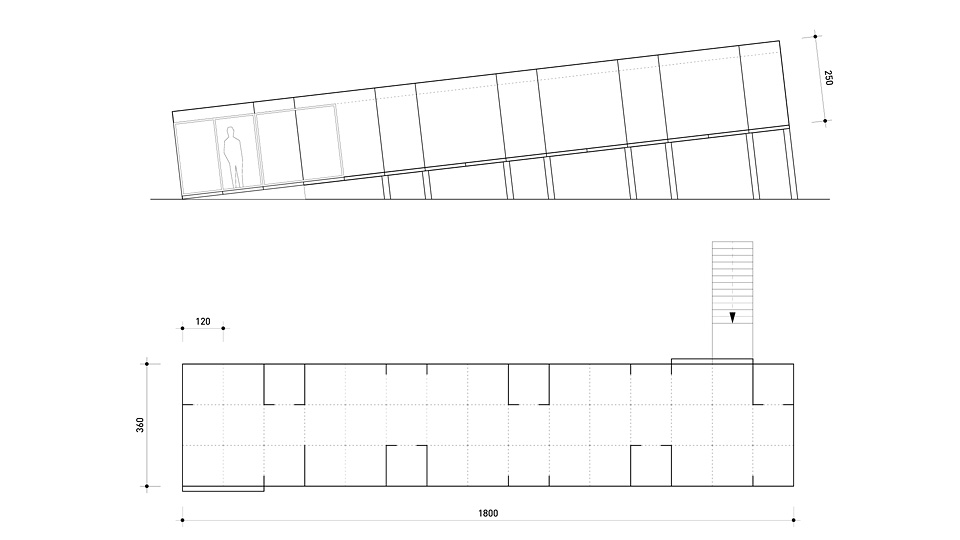
Fünf Objekte unseres täglichen Lebens hängen in Tschumis Glaspavillon, drehen sich langsam mit unterschiedlicher Geschwindigkeit nach links oder rechts und projizieren mit einer starken Lichtquelle Piktogramme auf den umliegenden Platz, die sich durch die Spiegelungen an der Glaswand des Pavillons vervielfachen. Der Passant bekommt einen reichen Eindruck von sich drehenden Objekten und sich bewegenden Lichtern zu sehen, die sich ständig vermischen und miteinander und mit der Umgebung kommunizieren.
Drei der sich drehenden Objekte thematisieren Vorteile der modernen Zivilisation, Gebrauchsgegenstände, die für uns alltäglich sind, wie eine Waschmaschine, ein Koffer oder ein Fernseher. Zwei der Objekte, die sich in die andere Richtung drehen, thematisieren die Schattenseiten des zivilisatorischen Fortschritts, wie eine Mülltonne, ein Ölfass oder eine Munitionskiste.
Auf diese Weise sprechen die schwebenden Objekte eine breite Palette wichtiger gesellschaftlicher Themen an: Komfort, Sauberkeit und Perfektion (Waschmaschine); Reise- und Freizeitindustrie (Anzugskoffer); die Macht der Medien (TV); Umweltverschmutzung und Abfallproduktion (Mülleimer); Öl-, Chemie- und Finanzindustrie (Ölfass); Kriegsführung und militärische Konflikte (Munitionskiste).
Alle Objekte strahlen durch eine starke Lichtquelle im Inneren und durch Ausschnitte in der Oberfläche eine Welt von Piktogrammen aus, die noch wichtigere Themen unseres täglichen Lebens ansprechen. Doch überraschenderweise strahlen die „positiv“ assoziierten Objekte nicht mehr Güter aus, umgekehrt strahlen die „negativ“ assoziierten Objekte nicht mehr Probleme aus. In der Installation für den Tschumi-Pavillon ist es genau andersherum.
Beide Anliegen sind miteinander verknüpft wie die zwei Seiten einer Münze. Man kann das eine nicht ohne das andere haben, zumindest in der aktuellen politischen Situation. Vor hundert Jahren, zur Zeit der industriellen Revolution, fanden diese Konflikte vor der Haustür statt.
In der globalisierten Welt sind die Konflikte außer Sichtweite und auseinandergerissen. Jetzt finden sich verschmutzte Flüsse und ausgebeutete Arbeiter in der Dritten Welt, und die Gebiete der zerstörten Natur sind über den ganzen Globus verstreut, während unsere Regionen renaturiert werden.
Am Ende könnte das Füllhorn von PRIMAVERA dasselbe sein wie die Konservendose von PANDORA.
//
Five objects of our daily life are hanging in Tschumi’s glass pavilion, slowly turning with different speeds to the left or right, projecting with a strong light source pictograms on the surrounding square, multiplied by many times through the reflections on the glass wall of the pavilion. The passer by gets to see a rich impression of turning objects and moving lights, which constantly mix and communicate with each other and the surounding.
Three of the turning objects address benefits of modern civilisation, commodities that are natural to us, like a washing machine, a suitcase or a TV. Two of the objects turning in the other direction, are addressing issues that depict the dark side of the civilian progress, like a waste bin, an oil barrel or an ammunition box.
In this way the floating objects address a wide range of important issues of society: comfort, cleanliness and perfection (washing machine); travel and leisure industry (suit case); the power of media (TV); environmental pollution and waste production (garbage bin); oil, chemical and financial industry (oil barrel); warfare and military conflicts (ammunition case).
All objects radiate through a strong light source inside and cut outs in the surface a world of pictograms addressing even more important issues of our daily life. But unexpectedly the „positive“ associated objects do not radiate more commodities, vica versa the „negative“ associated objects do not radiate more problems. In the installation for the Tschumi pavilion it is just the other way round.
Both concerns are linked to each other like the two sides of a coin. You can’t have the one without the other, at least in the actual political situation. A hundred years ago during the industrial revolution these conflicts happened in front of the door.
In the globalized world the conflicts are out of sight and torn apart. Now polluted rivers and exploited workers are found in the third world, and the areas of wrecked nature are scattered around the globe, while our regions are renatured.
In the end the cornucopia of PRIMAVERA might be the same as the tin can of PANDORA.
P R O P O S A L Tschumi Pavilion Groningen 2014 + D E S I G N projection lamp / objects / motors / digital control + S U P P O R T Marinus de Vries + M E D I A 5 images © Christoph Hildebrand + T A G S Light / Motion / Proposal / Urban / +
